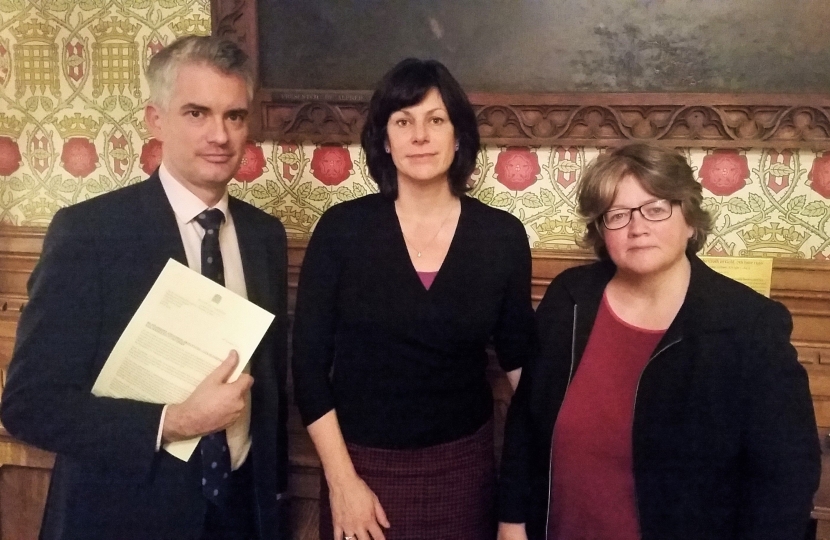
Claire Perry, Parliamentary Under-Secretary of State for Transport, recently met with Suffolk Coastal MP Therese Coffey, whose constituency includes the Felixstowe branch which has seen no passenger trains since November 11, and South Suffolk MP James Cartlidge. No trains have run on the Sudbury branch since November 10.
They have joined fellow MPs Ben Gummer, Dan Poulter, Bernard Jenkin and James Cleverley to sign a letter to the Transport Secretary demanding that whoever wins the franchise that is due to take over the services next October should have robust procedures to ensure rural services are not so badly affected in the future.
Mr Cartlidge said: “The situation on the Sudbury branch line, replicated on the Felixstowe line and now elsewhere, is driving my commuters in South Suffolk out of their minds with frustration.
“They pay thousands of pounds a year for a rail service, not a bus.
“I met Claire Perry, the Rail Minister, (on Wednesday) and also discussed this with the Secretary of State for Transport.
“It is fair to say they were somewhat shocked to hear about how many days have already been lost to leaf damage, and to think that we seem to have no end in sight.”
On Thursday services deteriorated further. Trains were suspended on the Great Yarmouth line in Norfolk and some services had to be withdrawn between Ipswich and Peterborough.
In most cases buses are replacing trains – but on the Peterborough route passengers are being advised to travel by train via Cambridge. However, that does add up to an hour to the journey.
Mr Cartlidge is also trying to find out why repairs cannot be undertaken at Abellio’s own engineering works. “There is a big question mark over how long it is taking to repair trains, with the only wheel lathes being in Derby and Ilford,” he said.
“We have therefore also asked that the contingency requirement includes a new wheel lathe at the Norwich depot.”
A spokesman for Abellio Greater Anglia said that on Thursday, 10 of the company’s 26 diesel units were out of action, almost all because they needed their wheels to be smoothed on the specialist lathes.
Units were suffering recurring problems – they were suffering fresh problems within days of returning from repair work. Every time a wheel was damaged it had to be sent back to the lathe again.
- Published in the EADT.
